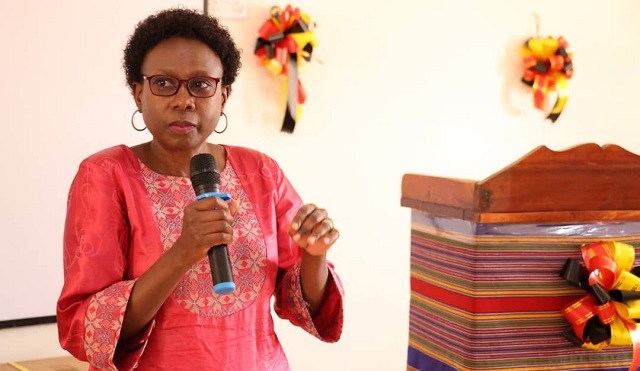
Kampala, Uganda | THE INDEPENDENT | The Ministry of Health (MOH) has revealed that a new draft bill to introduce the National Health Insurance Scheme will be re-tabled before cabinet in the next two weeks, revealing that it will be mandatory for all adult Ugandans to pay.
Speaking during the Opening of the Annual Joint Health Sector Review Conference on Wednesday, Health Minister Dr. Jane Ruth Aceng said having a national health Insurance scheme in place is one of the six commitments that Uganda recently made during the United Nations Health Assembly and that they have done thorough consultations to pave the way for its introduction.
This development comes after several failed attempts by the Health Ministry to establish the National Health Insurance Scheme since 2004. The latest attempt was last year when parliament passed the bill only to be withdrawn shortly after.
Aceng says while they had previously proposed that employers make part contributions to the scheme for their employees, this stance has since changed with complaints of over-burdening the employer.
Even before the public insurance scheme comes into place, employers have been one of the biggest buyers of private health insurance with corporate companies securing insurance for their staff.
Aceng says they have since established that employers don’t want to pay in the bigger national scheme and they therefore resolved to segment contributions according to generated income groups with some contributing annually and others monthly.
Aceng had earlier intimated to URN that each family head is expected to contribute fifteen thousand shillings for each member of his household to the scheme. She also said that anyone aged eighteen and above will also have to pay irrespective of whether they are in employment or not.
Meanwhile, experts have also spoken out on the idea of having people pay.
Dr Githinji Gitahi, the Chief Executive Officer, of AMREF Health Africa one of the entities that have been spearheading discussions on attaining universal health coverage, says the government needs to do mapping to determine which people can afford to contribute irrespective of whether they work in the informal or formal sector.
He suggests the use of village health teams to determine those who can afford the annual contribution. This he says has to be a continuous process because poverty levels keep changing.
***
URN
 The Independent Uganda: You get the Truth we Pay the Price
The Independent Uganda: You get the Truth we Pay the Price




Institutional policies cover care of employees
(a) When accidents occur at work place
(b) When infection is acquired at the work place
How do these relate to the status quo,?
All these are good intentions
There are many stake holders
We the consumers of the service being paid for, shall then have high expectations
We are grateful for the service offered by All health facilities
But have observed varied practice ranging from hand hygiene to management of disease conditions
We even learnt from the center that data from a very busy district is not adequately collected; using that as a point of reference, what else lis not covered?
Is the service offered to be assessed for every unit under tha National Health Insurance Scheme
Our fever is measured by hand in one place and using a thermometer in another place
We are suffering from bacterial infection every time our blood is tested, but we do not know the name of cause of infection
It is disheartening for one to hear that ‘ ‘Ugandans can access care within a 5km radius in a publuc or private healthfacility”
It is our humble prayer that this discussion ( on the mandatory insurance) caters for the consumers bearing in mind that they are interested in getting the ” universal health coverage” in its “true form”